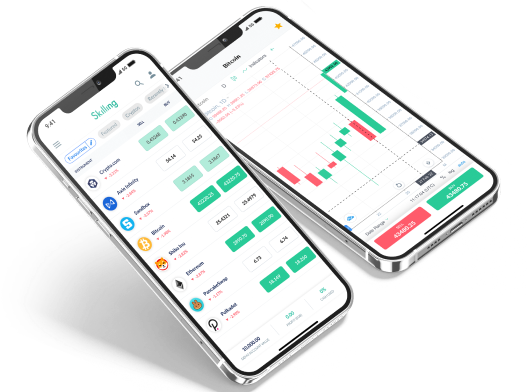
A time comes when investors look for new ways to grow their money beyond traditional stocks and bonds. One such option is private equity. But what exactly is private equity, and how does it work? In simple terms, private equity involves investing directly in private companies or buying out public companies to make them private. This type of investment is different from buying shares in a company listed on the stock market.
Practice with a Demo Account
Try our demo account and experience real market conditions.
71% of retail CFD accounts lose money.

What is private equity?
Private equity is a type of investment where people or firms put their money into private companies. These companies are not listed on the stock market. Instead of buying shares like you do with public companies, private equity investors buy a significant part or all of a private company. They do this to help the company grow, improve its performance, or even turn it around if it's struggling.
Private equity investments are often made by specialized firms or wealthy individuals. These investors usually plan to keep their investment for several years, work closely with the company's management, and then sell their stake for a profit. This type of investing could be profitable but also comes with higher risks compared to more traditional investments.
Private equity example
A good example of private equity is the work done by well-known private equity firms like Apollo Global Management and Blackstone Group.
Apollo Global Management, for instance, invests in various companies. One of their investments is Cox Media Group, which owns TV and radio stations, and CareerBuilder, a popular job search website. Blackstone Group, another major private equity firm, invests in different sectors, including real estate and healthcare. They own companies like Service King, which provides auto repair services, and Crown Resorts, a group of luxury hotels and casinos.
These firms use their money to buy these companies, improve their operations, and then sell them later for a profit.
Source: britannica.com
Experience Skilling's award-winning platform
Try out any of Skilling’s trading platforms on the device of your choice across web, android or iOS.
71% of retail CFD accounts lose money.

What are the differences between private equity and other investment options?
What makes private equity different from other investment options? One key difference is that private equity involves investing in private companies, which are not listed on the stock market. In contrast, most common investments, like stocks and bonds, are traded publicly on stock exchanges. When you buy stocks, you own a small part of a public company, and you can buy or sell these shares easily through a broker.
Another difference is the level of involvement. Private equity investors usually take an active role in managing the companies they invest in. They work closely with the company's leadership to improve its operations and increase its value. On the other hand, when you buy stocks or bonds, you generally don't get involved in the day-to-day running of the company.
Risk and liquidity are also factors. Private equity investments can be riskier because they often involve companies that need significant changes or are in early growth stages. However, they can also offer higher returns if successful. Public stocks and bonds are typically easier to buy and sell, making them more liquid. You can quickly sell your shares in a public company if you need cash, but selling a private equity stake can take much longer.
What are the risks of private equity?
- Private equity investments are usually less liquid than public stocks. This means it's harder to sell your investment quickly if you need cash. You might have to wait several years before you can sell your stake in a private company.
- Private equity investments often involve companies that need significant improvement or are in early growth stages. These companies might not succeed, which can lead to losing some or all of your investment.
- Private equity requires a lot of money and is typically accessible to wealthy individuals or institutions. This high entry cost can be a barrier for average investors.
- Private equity investments are not as transparent as public stocks. Private companies don't have to disclose as much financial information, making it harder to assess their performance and risks.
- Private equity investments usually take a long time to pay off. You might not see returns for many years, and there's always the risk that the company won't grow as expected.
Summary
In summary, Private equity offers a unique way to invest in private companies with the potential for high returns but comes with significant risks. It requires substantial capital, patience, and thorough research.
Source: investopedia.com
Ready to explore more investment options? Skilling is a reputable and award-winning CFD broker that provides access to global stocks such as Amazon and commodities such as coffee and gold (XAUUSD) with very low fees. Open a free Skilling trading account today!











